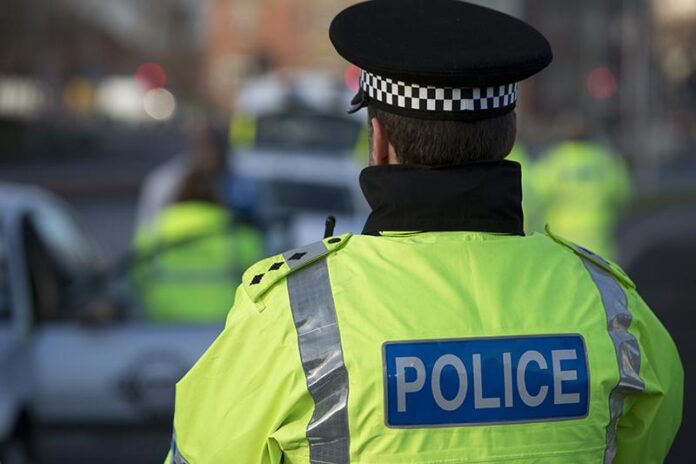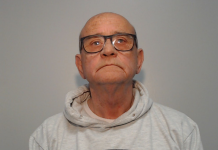Greater Manchester Police has improved its performance in some areas, but overall it is not achieving the expected level of service, the police inspectorate has said.
Majesty’s Inspectorate of Constabulary and Fire & Rescue Services (HMICFRS) graded Greater Manchester Police’s performance across nine areas of policing and found the force was ‘adequate’ in one area, ‘requires improvement’ in five areas, and ‘inadequate’ in three areas.
The areas graded as ‘inadequate’ included how the force investigates crime and how it responds to the public.
The assessment also comes 14 months after the inspectorate expressed a “serious cause for concern” after the Manchester force failed to properly record a fifth of all reported crimes — amounting to 80,000 offences — in the year to June 2020.
Inspectors found that Victims aren’t seeing enough positive results and offenders brought to justice.
For offences recorded in the year ending 31 March 2021, only 8.5 percent resulted in action being taken. This is significantly below the average across forces in England and Wales of 14.4 percent.
The quality of some investigations is not to an acceptable standard, which affects victims who report crimes to the force. Reasonable lines of enquiry were followed in only 70 of the 105 investigations reviewed. We found that some investigations didn’t have an investigation plan setting out directions and establishing the lines of inquiry to be pursued. For those investigations with an investigation plan we found that they consisted of a list of activities or actions completed by the investigator rather than a plan to progress the investigation and identify and secure evidence to achieve a positive result. When we did find a supervisor’s endorsement on an investigation, the supervisor didn’t always comment on the quality of the investigation or actions taken by the investigator.
Too many investigations aren’t progressed at an acceptable rate. The audit found that only 70 of 105 investigations reviewed were conducted in a timely manner.
In many cases, victims are not updated on the progress of an investigation. If a victim withdraws their support for the investigation, evidence-led prosecutions are rarely considered so to protect the victim from further offences.
Greater Manchester Police is also failing to respond appropriately to some people who are vulnerable and at risk. This means that it is missing some opportunities to safeguard victims and secure evidence at the scene. This enduring service failure has given cause for concern about public safety in Greater Manchester.
However, the inspectorate acknowledged that Greater Manchester Police had made progress, including improving its crime recording so that it is now properly recording a substantial majority of the crimes reported by the public.
Her Majesty’s Inspector of Constabulary Andy Cooke said:
“Greater Manchester Police has faced immense challenges, but I am pleased with the progress the force has made in the short period of time since it published its new action plan, back in September last year.
“However, Greater Manchester Police is still falling short of the level of service both the inspectorate and the public expect. I am particularly concerned about how the force investigates crime, its insufficient understanding of demand, and how it supports its workforce. We have made several recommendations for the force to make improvements in these areas.
“The challenges facing Greater Manchester Police should not be underestimated, but I am optimistic that the trajectory and pace of improvement will continue this year. We will continue to closely monitor the force’s progress.”
Responding to the report Deputy Chief Constable Terry Woods said:
Today’s report published by Her Majesty’s Inspectorate of Constabulary and Fire & Rescue Services is a fair and accurate illustration of the position Greater Manchester Police was in last September when they undertook their assessment visit. Indeed, much of what the report highlights was a feature of our own root cause analysis published around that time which informed the development of our strategic improvement plan.
He added that one of the main issues we faced in September was crime recording and, positively, HMICFRS has recognised our significant improvement in this area. Our current compliance with national crime recording standards is nearly 91%.
“This is an extremely positive shift from being one of the poorest performing forces in the country, to being in the upper quarter of the table in a relatively short period of time. This improvement clearly demonstrates our commitment to a sustainable and continued progression with our crime recording and shows we are on track.”
“We know historically there has been long waits for both 999 and 101 calls, and I understand this is one of the most important issues the public wants us to fix. We have invested heavily in this area, and I’m pleased to say we have seen the waiting times come down as a result. The average time for 999 calls to be answered is currently around 25 seconds, which has reduced by half compared to the critical incident of July last year. 101 call answer time has also significantly improved, to an average of three minutes 47 seconds – a sizable reduction from the eight minute peak we saw in the same critical period in July.
Whilst this is an excellent start and shows the investment is working, these times are still longer than our original target. We are grateful to the Mayor and the Police and Crime Panel – and most importantly to our Council Tax payers – for supporting the additional investment through the council tax precept which has enabled us to start a substantial recruitment campaign for 100 new call handlers. We are looking to recruit in Greater Manchester and there has never been a better time to join us and help us achieve our goals – applications can be submitted on our website.”
We also knew back in September that we needed to free up officers to do the job they were brought in to do – tackle crime and bring offenders to justice. This meant better handling of the crime reports as they come in and reducing demand on our response officers. Our new training for call handlers and a new, more effective, policy for grading calls has been launched and has already seen the demand being placed on response officers reduce by 15%. This is due to the new approach of resolving the needs of the caller at source where appropriate.







